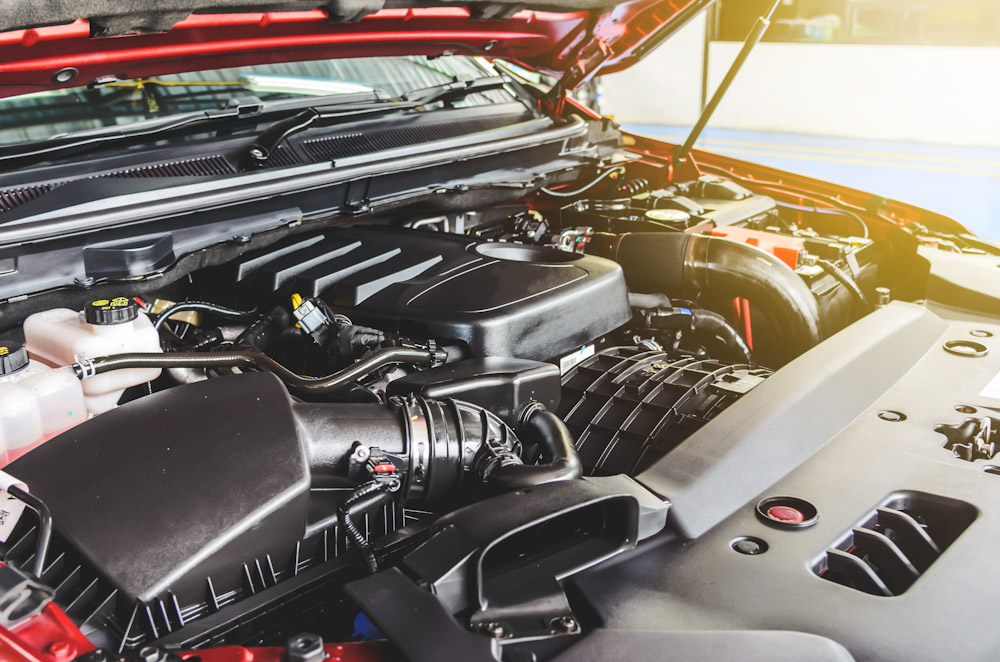
It’s no question that one of the biggest concerns surrounding our vehicles is their lifespan. No car owner dreams of frequenting the mechanic shop or worrying about whether or not their lift will get them from point A to point B. Of course, each car has its limit— a limit that can be reached sooner or later depending on how it is driven and maintained.
For many years, the average lifespan of an engine was around eight years or 150,000 miles, but now, due to better technology and service standards, the life span has increased to around 200,000 miles. For those who reach or exceed this average, proper care is likely a contributing factor. As your Murray auto care experts, we created a list of helpful tips for extending the life of your engine so you can get the most out of your car.
Easy on the Gas Pedal
Accelerating rapidly while the engine is running at low rpm’s or in a high gear puts undue stress on the system and can cause performance issues over time. Though it is not always possible, easing into the gas when accelerating from a stop or picking up more speed is always a good practice that can add up to thousands of miles of increased engine life.
Be Cognisant in Cold Weather
When the vehicle starts, oil pumps force oil through a filter and into parts of the engine. Although the freezing point of motor oil is around -20 degrees Fahrenheit, the viscosity begins to increase as external temperatures dip below 50 degrees Fahrenheit. This means that the fluid thickens. For this reason, it is important to let the engine warm up for a minute or so before driving in cold weather. This will significantly reduce strain.
Use the Parking Brake
The functions of the parking brake are often a cause for confusion due this component’s alias name— the emergency brake. Although the parking brake is engineered to be used in the event of primary brake loss, it also has a consistent function. Each time the vehicle is put into park, it is a good practice to initiate the parking brake even if the car is parked on flat ground. This takes stress off of the transmission and can improve engine health over time.
Shift Carefully
We are all guilty of being in a hurry from time to time. Although this be the case, it is very important to wait a beat before switching gears, making sure the vehicle is at a complete stop before doing so. It is very common to shift from reverse to drive before completely stopping as well as from drive to park. This habit is damaging to the transmission and should be avoided.
Follow Correct Fuel Guidelines
You may have noticed a few different fuel options when pulling up to the pump for a fill-up. Aside from a difference in price, these different options have different octane ratings. A higher octane rating reduces engine knock which can be beneficial for many engines. If your make or model has an octane rating specification, be sure to adhere to that guideline.
Don’t Neglect Maintenance
One of the most important things you can do for your vehicle is keeping up with best maintenance practices. Among them are oil changes every 3000 to 5000 miles, tune-ups every 30,000 to 60,000 miles, and fluid changes as needed. Keeping on top of maintenance can make a significant difference when it comes to the health of your car.
We Can Help
When all is said and done, a vehicle will need servicing and repair to some degree throughout the course of its useful life. How this carried out can have a large bearing on vehicle health. When it comes to auto repair and maintenance, a good mechanic can make all the difference. At Master Muffler Murray we have the expertise necessary to get the job done right. Whether you are in need of a simple oil change or full-blown engine repair, you can trust us with your car. Come visit us today.
Related Posts
Key Takeaways On average, passenger vehicle tires last 40,000 to 60,000 miles, depending on type, driving habits, and maintenance. Replace tires when tread depth reaches 2/32”, if damaged, or older than 10 years. Regular rotation, alignment, and proper inflation extend tire life. Aggressive driving, poor roads, and harsh weather shorten tire lifespan. Take advantage [...]
When you think about car maintenance, you probably focus on oil changes, tire rotations, and maybe even brake pad replacement. But what about your brake fluid? If you’ve ever wondered, “What does brake fluid do?” or “Why is brake fluid important?”, you’re not alone. Brake fluid might not be the most talked-about part of [...]
Is that high-pitched squeal from your brakes driving you—and everyone else—crazy? Don’t ignore it. Squeaky brakes aren’t just annoying, they’re your car’s way of saying something needs attention. Whether you're cruising through Salt Lake City or winding up Idaho’s mountain passes, here’s what’s likely going on, how you can fix it, and when it [...]





